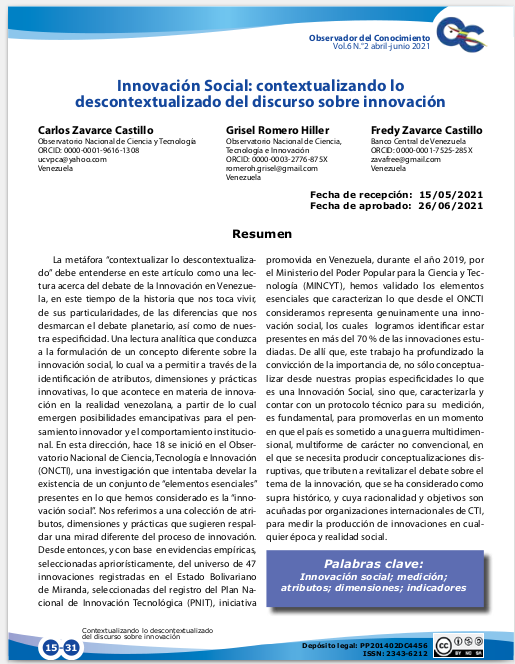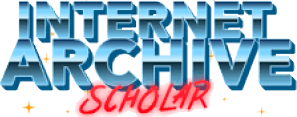Contextualizing the decontextualized innovation discourse
Abstract
The metaphor "contextualize the decontextualized" should be understood in this article as a reading about the innovation's debate taking place in Venezuela, its particularities, the differences from the planetary debate, and our specificity. The article aims to provide an analytical reading that allows the formulation of a different concept on social innovation, demonstrating by identifying attributes, dimensions, and innovative practices, the development of innovation in the Venezuelan reality, from which emancipative possibilities emerge for innovative thinking and institutional behavior. Therefore, eighteen months ago, the National Observatory of Science, Technology, and Innovation (ONCTI) began a research that tried to reveal the existence of a set of "essential elements" present in what we have considered as "Social Innovation". Thus, we refer to a collection of attributes, dimensions, and practices that support a different view of the innovation process". Since then, based on empirical evidence from 47 innovations registered in the Bolivarian State of Miranda, selected from the National Plan for Technological Innovation (PNIT), we have validated the essential elements that characterize what ONCTI considers as a representation of social innovation. These elements were present in more than 70 % of the innovations studied. Hence, this work has deepened our conviction about the importance of conceptualizing our specificities of Social Innovation, characterizing it, and having a technical protocol for its measurement. Likewise, it is fundamental to promote this conception in a moment in which the country is subjected to aggression of unconventional nature. Thus, it is necessary to produce disruptive conceptualizations that contribute to revitalizing the debate on innovation, which has been considered supra-historical and managed by international organizations to measure the production of global innovations.
Downloads

Downloads
Published
How to Cite
Issue
Section
License

This work is licensed under a Creative Commons Attribution-NoDerivatives 4.0 International License.







